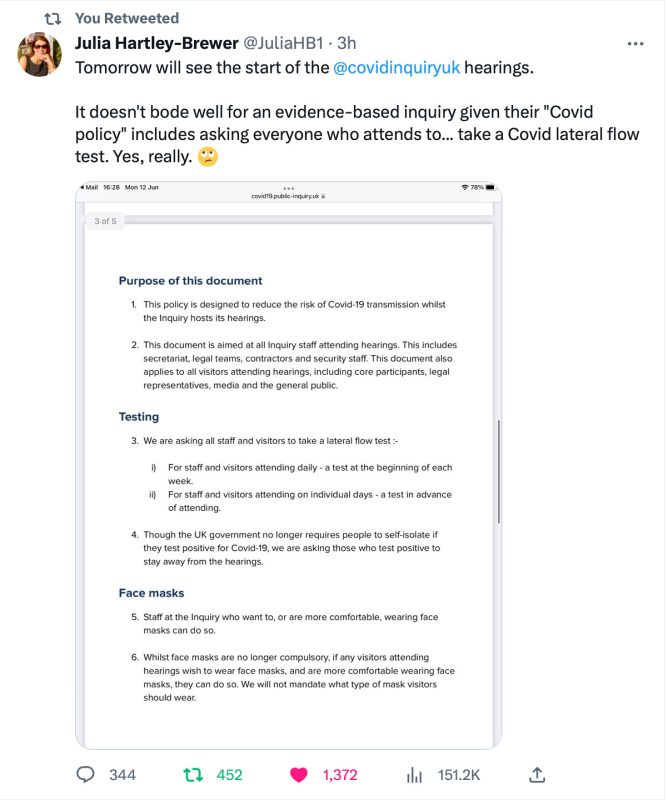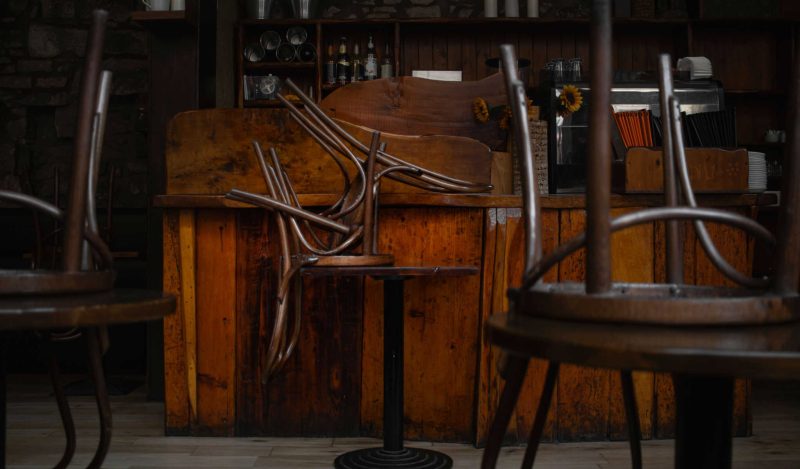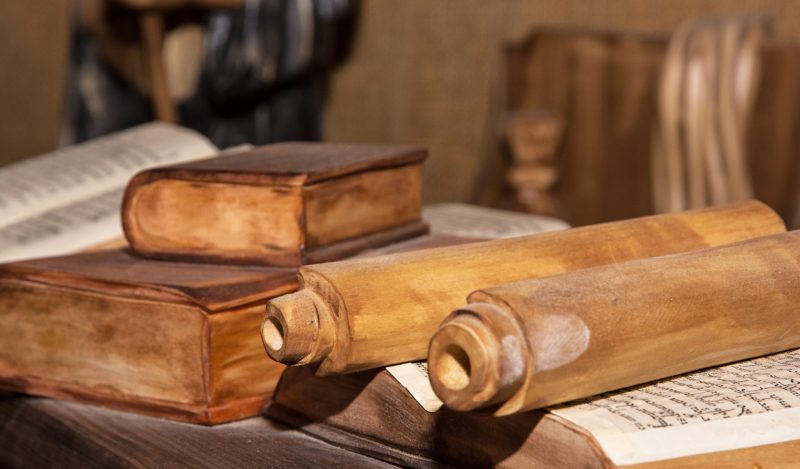These walls are funny. First you hate ’em, then you get used to ’em. Nuff time passes, you get so you depend on ’em. That’s institutionalised. ~ The Shawshank Redemption
The first Covid-19 inquiry public hearing will be held today, following the preliminary hearings which began in February. The inquiry will call witnesses to give evidence under oath and they will then be questioned by barristers and the chair, Baroness Hallett.
There is no deadline for the inquiry’s conclusion. It is an eye-wateringly expensive investigation, currently estimated to cost £114 million, but it will potentially run to more than the Bloody Sunday inquiry which was nearly £200 million. Sixty-three lawyers are working directly for the inquiry and a further 100 are named as representatives. MP Graham Stringer has commented that this is a ‘very expensive and very bloated’ inquiry and it may be used to ‘kick things into [the] very long grass.’
It is important not to pre-judge the outcome of the inquiry, but it has been increasingly difficult to be hopeful for the inquiry’s fairness and value for money. After the imbalance of the modules and core participants, the first serious dark cloud to descend was the lamentable list of 150 questions put by Baroness Hallett to Boris Johnson. Now, they are only questions and we don’t have the answers yet, but to give you an idea, question 45 was particularly chilling:
45. To what extent did the UK Government have regard during the period January to March 2020 to the response of other countries to Covid-19? Did you consider taking more stringent measures in response to Covid-19 such as those seen in, for example, Taiwan, Singapore, New Zealand etc? What, if any, assumptions were made about how such measures would (or would not) work in the UK?
Why not Sweden? It did not impose strict lockdowns, or close schools for under 16s and currently has the one of the world’s lowest excess mortality figures. This inquiry appears to favour stringency above existing pandemic planning, minimum economic and social disruption, and low excess deaths.
But there was worse to come. If you thought that the curtain had closed on Covid safety pantomime, think again. Broadcaster Julia Hartley-Brewer has tweeted that the Covid-19 inquiry policy is for staff and visitors to take weekly lateral flow tests if they attend daily, and test in advance for individual days. The inquiry’s Covid policy goes further than government recommendations, asking those who test positive to stay away. The largely pointless face masks are welcome. The air will be purified, sanitising stations available and a ‘disinfectant fogging treatment will be used on the surfaces in the hearing room, viewing room and other rooms each evening.’
While some of the attendees who have lost loved ones to Covid may appreciate these gestures, they are nevertheless gestures. The Post Office Horizon IT Inquiry, for instance, does not publish such a ‘thorough’ Covid policy.

Psychologists found lockdown in itself was a primary reason why so many people were willing to abide by the rules from the start – believing the threat must be very severe if the government was willing to impose such drastic measures. In other words, ‘If the government is doing this, it must be really bad.’ This supposition was reinforced by a concerted behavioural psychology campaign, a blitzkrieg of advertising, Downing Street briefings, unbalanced media coverage, the Covid death data dashboard, the most punitive laws and fines since the Dark Ages and the ongoing restrictions, tiers, rules, and isolating lockdowns.
And now the people running the inquiry think we need more lateral flow tests and masks. The country has been institutionalised by Covid fear-mongering and the inmates are now running the asylum inquiry.
After dressing up in masks, taking weekly lateral flow tests for years and processing the answers to biased questions, the inmates at the inquiry will simply deduce that the walls were not ‘funny’ enough, not built early or high enough. Next time there is a pandemic, people will be able to say ‘Baroness Hallett’s report stated that the UK government didn’t lock down fast – or hard – enough. We won’t make that mistake again!’ There will be no redemption, just a long, hard sentence, swiftly imposed. Once again, lives will be ruined, not saved.
It would be better to have no inquiry than this inquiry.
Republished from the author’s Substack
Published under a Creative Commons Attribution 4.0 International License
For reprints, please set the canonical link back to the original Brownstone Institute Article and Author.









